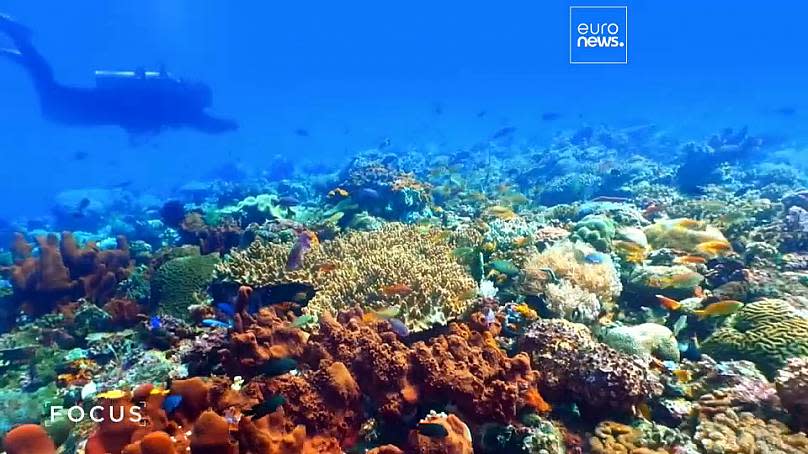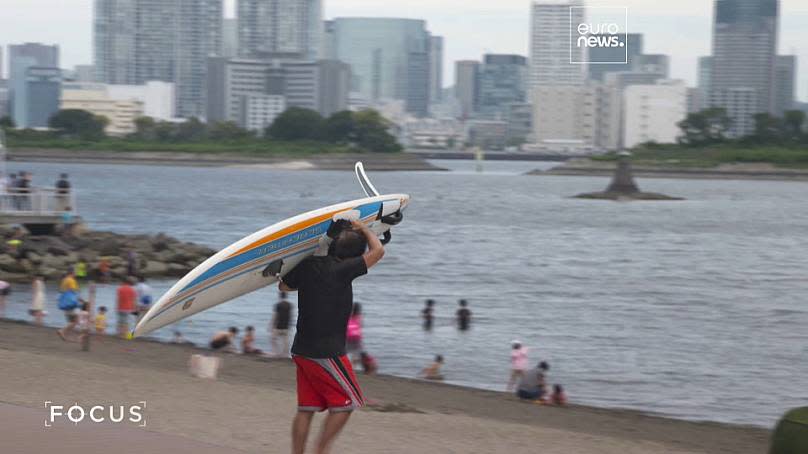The World Travel Market in London brought together thousands of representatives of the global travel industry in early November. A sector decimated by the Covid-19 pandemic, now focused on the big rebound.
It discussed developments in the sector, new technological trends and the consumption of tomorrow.
Resumption of tourism in Tokyo
International tourism has finally resumed in Tokyo, after more than two years of isolation due to the pandemic. And as visitors return, the city encourages them to think outside the box.
“Most people think that because Tokyo is a big city, you have to stay in the urban area, says Masashi Imai, in charge of promoting the Japanese capital. We have to show the other side of Tokyo. People can enjoy the city very well, but also discover other lesser-known places around it.”
Visitor distribution is now a priority for many countries looking to meet their commitments to responsibility and sustainability.
And common goals sometimes set aside old rivalries.
“Before, it was the sun, the sea and the sand, explains Sandiaga Salahuddin Uno, Indonesian Minister of Tourism. Today there is also serenity, spirituality and sustainability. There are enough tourists for everyone. We don’t have to compete with Bangkok, Kuala Lumpur and Singapore anymore because no one wins.”
“We need to collaborate, we need to think of Southeast Asia as one destination and we believe that with the right approach towards personalized, localized and smaller tourism, we will be able to offer better experiences and better memories.”
The experiential travel trend
Juliette Losardo, director of the show, believes that the sector is changing due to the arrival of new generations of tourists.
“These new tourists have bigger budgets, she believes. They buy experiences, they don’t just buy destinations. I think that while destinations will always matter, it’s going to be more and more about what you can do there.”
Artificial intelligence and big data are also helping the travel industry personalize experiences and reach young travelers.
The Philippines builds unique experiences around activities like diving, adding ecological and educational elements.
“It’s not just about coming to dive for two or three days, or doing night diving, says Margarita Montemayor Nograles, of the Philippine Tourism Board. _We would like to offer a water cleaning activity during the dive. We would also like to tell the story of marine life.”

Saudi Arabia, whose tourism is growing, says reaching experiential travel enthusiasts requires understanding their lifestyle.
“If you and I are K-Pop fans, whether you’re in Riyadh or Paris, we belong to the same community, explains Fahd Hamidaddin, head of Saudi tourism. I think it is by understanding this and targeting these communities that we can approach tourism in the future. It’s about offering a journey based on passion.”
EuroPride in Malta
For its part, Malta is looking forward to hosting EuroPride next year for the very first time.
“Malta has been ranked among the top LGBTIQ destinations for the past seven years, rejoices Clayton Bartolo, Maltese Minister for Tourism. This is a testament to the hard work that has been done on the civil rights front. There are expected to be over 25,000 visitors for EuroPride alone next year. Malta is a very small island, that means a huge influx of people.”
The Covid-19 pandemic has hit the global travel industry hard. But he has recovered and is reshaping himself by looking at the future from a different angle.
Wolrld Travel Market: when the travel industry reinvents itself

